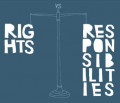What will it take to protect our religious freedom rights under the Constitution?
The constant attack on our freedom to express or practice our religious beliefs needs to be protected but accomplishing this is not an easy task as some might think. First the language of the 1st amendment regarding this right is clearly stated but that has not deterred individuals and organizations from taking action to restrict this right.
The principle of separation of church and state which is not specifically engrained in the Constitution but the limitations on government regarding our religious freedom cannot be misunderstood. Clearly our founding fathers through their experiences involving a nationally identified religion in countries such as the British Empire during colonial times were the foundation of this limitation.
Religious freedom was not questioned in the early days of our country as exhibited through historical records applicable to various parts of the colonies. One of the principles which drew individuals to this country was the principle of religious freedom. The 1st amendment is evidence of this search. The environment of today is quite different than that which existed in our early days as a country. In some respects the technology of today has increased the opportunity for individuals and sometimes groups or organizations to impose their concept of freedom of religious freedom.
Many battles in the courts have taken place none are as obvious as the display of the Ten Commandments. Many if not all of the commandments can be found in many of our laws which have been passed over the years so why is there a problem with displaying these principles. It appears the objective is the manner in which these are presented which some deem to be identifying a specific religion which they are not. In addition these commandments are displayed on the United States Supreme Court Building in Washington D.C. yet there has been no lawsuit associated with this display. Selective objections seem to be in place in these court cases. If it is acceptable to display the Ten Commandments on the Supreme Court building then why is it a problem in other areas of our country?
Court battles surrounding the free expression of religious beliefs is not limited to the Ten Commandments as recently a lawsuit was filed against pastors in Houston, Texas requiring they provide the content of their sermons to the city of Houston as a result of a recent ordinance. It is clear that the Constitution which applies to all levels of government not just Congress specifically prohibits any restriction on individuals and particularly pastors from exercising their religious beliefs.
Individuals who have objections to the display of religious beliefs especially around religious holidays are not required to look at or even pass by them if they find them objectionable. The questions as to how to protect this right goes hand in hand with freedom of speech which is also contained in the 1st amendment. The answer involves several aspects of society.
The first and foremost is our judicial system and those who make decisions in some cases associated with their personal opinions. Personal opinions have no place in our justice system. Decisions made by judges or juries should be based on the facts in any case including the Constitution. Individuals who have opinions which contradict the principles engrained in the
Constitution and file lawsuits to prevent the free exercise of our rights for one should have their cases rejected for what they are. They are actions the purpose of which is clear to restrict the freedoms we have been given in the Constitution. If openly rejecting such cases is not possible then the decisions by judges or juries need to soundly reject any lawsuit which attempts to limit our constitutional rights.
Our Constitution is not a difficult document to understand based on the language contained in each of the amendments and articles. The current problem with cases being filed today regarding several of the rights included in the 1st ten amendments is that interpretation is being utilized in our justice system when all that needs to be done is to read the words as written. If there is some question as to the meaning which is highly unlikely given the language individuals making decisions need only look at the federalists papers. The federalist papers along with the Constitution should be the basis for making any decisions regarding lawsuits associated with any portion of the Constitution.
It is also understood that many amendments have been added to the original Constitution but the language appears to be clearly defined in each of these additions. While it is the function of our judicial system to make decisions regarding actions of government with respect to the details of the Constitution interpretation should be limited if not nonexistent. Freedom of religion and freedom of speech are interrelated with our rights to freely express our religious beliefs not only in words but in displays of our religious beliefs. It has come to the point in some cases where businesses no longer display the term Merry Christmas and have replaced it with Happy Holidays. While it is not battle in our court system it is a battle in public opinion. We as individuals must fight any efforts to restrict the freedoms we have in the Constitution and should insist the Constitution be followed to the letter by individuals in our judicial system and our elected officials. This is especially critical for freedom or religion and freedom of speech.






